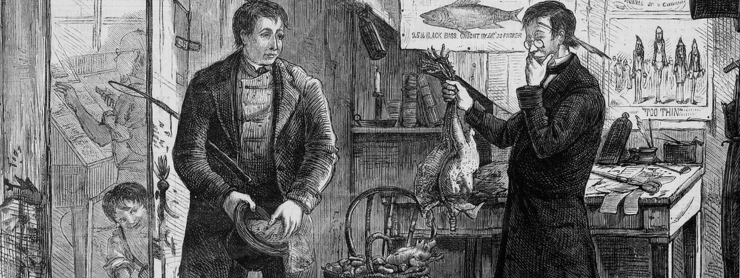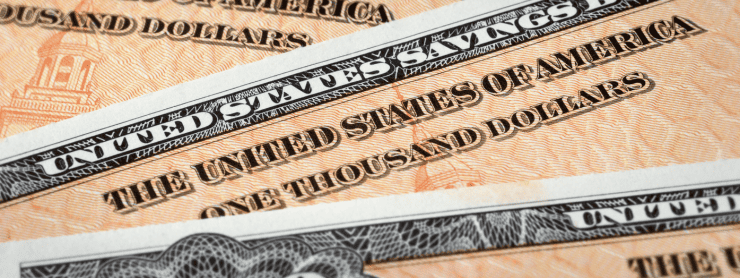Originally posted on December 13, 2012 at the New Economic Perspectives blog.
The monetary system is a wonderful creation. It allows for individual choice while giving government access to resources needed to allow it work for us to achieve a just society.
The monetary system spurs entrepreneurial initiative. It finances, organizes, and distributes much of the nation’s output. It is one of the primary mechanisms used by government to accomplish the public purpose.
There could be a better way to organize production and distribution. There could be a better way to allocate resources between public and private. There could be a better way to induce the private to serve not only its own interest but also the public interest. But if so, we have not yet seen it—at least not since the end of tribal society, and I’m not sure I want to go back there.
Until that better system comes along, we need a progressive meme for the monetary system we’ve got. Progressives have been in retreat for the past three or four decades. Yes, they’ve won some battles—mostly in the social sphere. They’ve lost almost all economic battles, however. At least some of those losses are due to adoption of the wrong meme for money.
We need to recognize that the monetary system is important. It is not merely—or even mainly—used to lubricate exchange of goods and services. From its origins, the monetary system has played an important role in pursuit of the public interest. It also is used in pursuit of the private interest. And it is—especially in recent years—used by a rapacious elite of Wall Street insiders in their own selfish interests.
To be sure, the monetary system cannot and should not do everything. While capitalism tends to extend the monetary sphere into an ever larger proportion of our social provisioning processes (“the economy”) that can be carried much too far. There are areas that need to be kept off-limits, including many functions within the purview of government.
We pay our judges and lawyers but we do not want them to sell judgments to the highest bidder.
We let our candidates for higher office accept campaign funds but we do not want them to sell themselves to contributors.
As we push this progressive meme we acknowledge that we deserve a better government than what we’ve got—and what we’ve had even when at its best. Many of those in government serve private interests, not the public interest. They’ve been bought and paid for.
The monetary system provides the power to do good, and the power to do bad is the other side of the coin. Still, even a largely bought and incompetent government (remember “Heckuva Job, Brownie”—in charge of President Bush’s rescue of New Orleans after Katrina?) is better than no government.
Even the highly suspect bail-out of Wall Street in the aftermath of the Global Financial Crisis was better than no policy response at all.
A better government can serve us better (compare the Obama administration’s handling of Sandy to Bush’s handling of Katrina). Perfection is hard to achieve, but not necessary to attain some success.
Good is not the enemy of perfection.
We have a better chance of getting a better government if we choose a better framing. We need better memes for our economics. As Robert Heilbroner told me (while declining to write a blurb for my 1998 book): money is the scariest topic there is, and your book is going to scare the hell out of the reader. He was right. We need to stop scaring their readers.
I know from nearly a quarter century of experience that the framing and memes used by those of us who have developed MMT on the shoulders of giants (mostly, Post Keynesians and Institutionalists) that we need better framing.
It isn’t enough to be right.
More generally, progressives need to drop the conservative framing; they need immunization against the conservative meme viruses.
They need a new meme for money. I don’t pretend to have found the right one(s). But I hope to have contributed to the initiation of a discussion.
15 RESPONSES TO “AN ALTERNATIVE MEME FOR MONEY: CONCLUSION”
- Sunflowerbio | December 13, 2012 at 10:30 am |Randall, are there any names that you would like to see President Obama nominate for Secretary of the Treasury? Just curious who you think might be best from a MMT perspective.
- Javed Mir | December 13, 2012 at 10:58 am |So Randall Wray ended from where he started. This MMT concept has proved a very slippery bird to be captured!
- LRWray | December 13, 2012 at 11:14 am |That is hard because I do not live in that world. There is some talk of getting Sheila Bair; while she’s good on financial institutions in Q&A she’s demonstrated she doesn’t have the foggiest understanding of sovereign currency. I’d go with Michael Greenberger instead–excellent on financial institutions and I’m sure educable on functional finance.
I know what we do not want: anyone from Wall Street. All top management on Wall St have been overseeing fraud–if not individually involved in it, they’ve facilitated it.
But, almost a sure bet: it will be a Goldman or Citi alum. Got to keep the scams going. Obama cannot appoint anyone who is honest. - justin | December 13, 2012 at 11:52 am |Prof. Wray,I’m new to NEP and MMT (since October, actually). I’ve read most of the blog Primer, but am still waiting for your book to be delivered. As a retired philosophy prof, I’m skeptical, but even so, I’m pretty well sold on the importance of the movement, and the validity of your claims and perspective. I have two comments, and one question.Comment 1: Maybe using the word ‘meme’ will turn ordinary readers away. I feel that you’re careful to avoid technical jargon in your blogs. I’m not sure who your audience is – I hope wider than the blogosphere writers. The circle of acquaintances I share these ideas with are smart and and thoughtful – even sophisticated – but don’t like jargon or unexplained acronyms.Comment 2: The various progressive political and social views you and your colleagues may have, as well as those of other bloggers who get on the NEP website (and I share most of them), tend to be subjective and value oriented. I believe the (more objective) purely economic, monetary and fiscal ideas need to be kept separate, clarified, repeated, marketed and pounded into the public consciousness, and those who try to influence it, until they are simply accepted as a matter of course. I hope that’s possible, but it’s surely an uphill battle, even without linking it to the political cage-fighting so widespread in the popular media.Question: Do ANY people in high places of policy making (federal, state, local) hold to the ideas of MMT? It seems incredible that ideas of this importance appear to get almost no notice or traction, outside the small circle of believers. If I’m right, is that not a reason to be skeptical of the whole movement? I hope for some reassurance; and this might come in the form of more references to ways that experience and facts support the theories you summarize so effectively herein. This last point was expressed recently in comments by another reader. Thx.
- Malmo | December 13, 2012 at 1:37 pm |“Do ANY people in high places of policy making (federal, state, local) hold to the ideas of MMT?”That’s a very good and extremely important question, but I’d narrow it down a bit. If the overwhelming majority of one’s PEERS don’t subscribe to MMT then how on earth will the larger public who generally hang on the every word of the so called economic experts do so? Convince your fellow academics and the problem of rallying the public around MMT will be simple as a can of corn.
- aj | December 13, 2012 at 3:50 pm |I too struggled for a while wondering if MMT is just a load of bullocks. You would think something this important would be subscribed to by more people. At that point I tried to find as many articles and posts I could find on why MMT was not true, and I could not find one article or post that could logically point out any faults. The argument against MMT usually starts off by someone just flat out saying something like, “you can’t just create money out of thin air.” This point MMT easily proves false, and you can get most people to concede this point fairly easily. The next hurdle is inflation, which usually gets expressed as the argument, “but, but but, ZOMG inflations!!111!, Zimbabwe, Weimer Germany!1!1!!” This argument can be countered by explaining how increasing demand when an economy is under capacity increases supply. That price only goes up (inflation) when supply can’t keep up with demand. This explanation is more difficult to get across, because the person must be somewhat familiar with econ 101 supply and demand. Most people who value intellectual honesty will now concede both of these points to you. Now you are up against ideology: “We have to impose all these rules to limit federal spending, because if we didn’t the Congresscritters will just spend money all willy-nilly on whatever projects they want.” It is this conservative mistrust of giving congress too much power that prevents us from giving them enough power to do what should be done. This is why Randy is looking for an alternative framework: to help win the moral argument.There are several reasons this is not more mainstream. First and foremost it requires a lot more economics knowledge than most people have. Your average Joe could care less about reading Randy’s MMT Primer or understanding exactly how the Fed and Treasury conduct monetary operations. The reason that you don’t see more academics jump on the bandwagon is that mainstream economics has a vested interest in maintaining its status quo. As Steve Keen frequently points out, mainstream economics completely ignores the private banking sector. As incredulous as that sounds to a non-academic, it is completely true. For example take Paul Krugman’s comment “Now, I’m all for including the banking sector in stories where it’s relevant; but why is it so crucial to a story about debt and leverage?” If you don’t know why Krugman is wrong, go to Keen’s website and watch a few of his lectures. Economics is still a relatively young discipline, it is hard to set up experiments to confirm or hypotheses and real world scenarios play out over decades or centuries, not days or months. There is really only 1 other depression with which to compare the current one, and an experiment with 2 observations doesn’t really lend itself to developing hard and fast theories. What Randy and the rest of the MMTers at UMKC and elsewhere have done is resurrect theories that were discarded during the “great moderation” and update and expand on them.Expect to see more people accept MMT over the course of the next few years. Especially if we start double-dipping in 2013.
- Jason | December 15, 2012 at 1:23 am |Justin, an excellent contribution. I would generally concur with your two comments.However, and there always needs to be a ‘however’ at this point, from what I can gather from my interactions from politicians at local and national levels here in the UK, when the principles of MMT/Post-Keynesian economics are put forward in private settings there is a degree of acknowledgement at least, and sometimes great enthusiasm for the ideas espoused. In public, it is a very different story. At a recent conference fringe event I asked a very senior front bench politician what his thoughts were on the extreme neoliberal proposals being put forward by some Tory backbenchers, and also what he thought of Steve Keen’s idea of a modern day debt jubilee. He was more than happy to criticise the former at length, but did not say a solitary word on the second part of my question.I think there is, particularly on the ‘left’ of the political spectrum, a timidity and fear of challenging the status quo, which has existed since the bitter experiences of the 1980s. There is a belief that the other side has ‘won’ the economic and political debate, that there is no challenge to the pervading neoliberal consensus, and to do so means a decent to ‘inelectability’. In short, it is now a question of valence politics: who can manage the business of government better. This view has become slightly more contested since the crisis, but many academics in the political sciences, and the elites of the main political parties in these isles have, by and large, retained the same view of economics and politics they had before the crisis.I would argue, contrary to discrediting the case made by MMT/Post-Keynesians, that it is the political class, in addition to the majority academics in the fields of economics and political science, who have been discredited by the events of the last five years. Neoclassical economics is now discredited in truth, but the power of the myth of the ‘free market’, ‘there is no alternative’, and the link between capitalism and freedom remain in the minds of the electorate. Any politician in this country who dares challenge this orthodoxy will be chewed up and spat out, in spite of Leveson. What we are in need of is a politician willing to take that risk.
- Malmo | December 13, 2012 at 1:37 pm |“Do ANY people in high places of policy making (federal, state, local) hold to the ideas of MMT?”That’s a very good and extremely important question, but I’d narrow it down a bit. If the overwhelming majority of one’s PEERS don’t subscribe to MMT then how on earth will the larger public who generally hang on the every word of the so called economic experts do so? Convince your fellow academics and the problem of rallying the public around MMT will be simple as a can of corn.
- Jon Denn | December 13, 2012 at 12:49 pm |Story as MemeA town has fallen on hard times: 20% of the population is unemployed, many are underemployed, everyone is paying way too much for healthcare, mortgages are underwater, the university is charging way too much for degrees many can’t even find jobs with…Two employers look to open a large plant in the town. The smaller company will only build a plant large enough to maintain the status quo, at best. The other will build a plant that will require the town to grow.A no-brainer for the town, they grant permits to the larger company.From my understanding of MMT, and I’m a journalist, not a economist, at any given time in an economy the private sector or the public sector is the larger employer. But one of them has to be or our country will just be lesser, not greater.For the life of me I cannot understand why we as a nation don’t embark on an infrastructure program of which there would be no rival on the planet. Again from my understanding of MMT as long as it doesn’t displace workers and resources from the private sector it cannot spur unwanted inflation. Although the conservative part of me would like to see each State choose their projects and administer the jobs.
- Sunflowerbio | December 13, 2012 at 12:58 pm |Just a thought about Sheila Bair. I didn’t have a clue about MMT two weeks ago either. That might be an advantage, plus she’s the anti-Geithner, anti-Summers, anti-Rubin etc .
- Andy | December 13, 2012 at 4:33 pm |“What we have here is failure to communicate” Cool Hand LukeMMT communicates better than other Post Keynesians.
What is it about MMT that stops …say Marc Lavoie getting onboard?
Is it merely the consolidated Govt thing? i.e. the voluntary constraints put in place between Govt and central banks.
I don’t buy that.
Anybody ? - Tom Hickey | December 13, 2012 at 6:09 pm |@ justinI am a former philosophy prof too. Welcome to the MMT philosophy club.1. About your question, “Do ANY people in high places of policy making (federal, state, local) hold to the ideas of MMT?” please read Warren Mosler’s The Seven Deadly Innocent Frauds of Economic Policy available through moslereconomics.com. Warren names names of people in high places to whom he explained MMT. Why isn’t this better known then? Randy has point out that Paul Samuelson said in another context that ordinary people could not be trusted with such knowledge. Bernard Leitaer, former European central banker, recounts how Paul Krugman once told him to stay away from talking about the monetary system, since it is a career killer. There are vested interests in keeping people in the dark. As you can probably already see, if the public knew what was possible we would be living in a different world. But that would not benefit the vested interests. Sorry if this sounds conspiratorial, but that is the way it is.2. I disagree about using words like “meme” and “framing” in this kind of a technical discussion addressing the issues we face as MMT proponents in getting our message out effectively. Cognitive science explains the mechanics of the mind-brain just as monetary economics explains the mechanics of the monetary system in terms of the central bank and Treasury. As Randy has done for MMT in the Primer, George Lakoff has set forth the cognitive science of framing simply and practically in his popular books. People who are interested in advancing policy ideas effectively and who are also unfamiliar with cognitive science need to become familiar with Lakoff’s work. Also helpful is Douglass C. North’s article “Economics and Cognitive Science.”As a philosopher, I would also suggest familiarity with analysis of ordinary language. I come from the Wittgensteinian POV on this, and LW’s later work right on target here wrt to his articulation of the operation of rules. It’s quite easy to see the relationship of LW’s logical analysis and George Lakoff’s articulation of the underlying brain functioning, which is hardly surprising.Both are elucidating from different angles the “operating system” of the human biocomputer and the “software” it runs for various applications. We can see economics and policy formation in this light and see where the “off the shelf” applications commonly in use are filled with bugs. We can also show how to debug them so they do what they are supposed to do.
- Alex Seferian | December 13, 2012 at 7:56 pm |Why not go for a visual “meme” to spread the word? The younger generations spend much more time looking at videos than reading text, and the older folk would probably pick up the underlying basics with greater ease if MMT were presented in visual format. There is already some material on youtube but nothing really cuts it. Ideally this would be like a documentary in terms of quality. Outstanding images, great sound, plain language… There would be space for some history…. some lectures and even perhaps a video clip or two of people like Greenspan admitting on TV that the Government is not constrained to issue money. Something really professional, easy to grasp and broken down into a multi-series piece. Perhaps an approach to someone like Charles Ferguson who directed the “Inside Job” would be worth a try.
- Larry Kazdan | December 13, 2012 at 8:10 pm |In my explanations, I like to mention that the gold standard has ended, since that gives a rationale for why fiscal rules that once made sense no longer do.>Letter published in Vancouver Sun:> Since the end of gold standard deficit spending not a problem
> November 22, 2012>
>
> Re: The U.S. fiscal cliff: Crisis or opportunity?, Opinion, Nov. 16
>
> According to Sherry Cooper, “Fiscal tightening is essential …” because the public debt-to-GDP ratio in the U.S. has now climbed to 73 per cent.
>
> But Japan’s debt ratio is well over 200 per cent and Japan has no problem issuing bonds, no difficulty keeping interest rates low, and no signs of inflation. So why exactly is deficit spending problematic?
>
> At one time, governments could run out of money which was exchangeable for gold, but President Nixon ended that era in 1971.
>
> Today, countries with free-floating non-convertible fiat currencies, such as Japan, Canada and the United States, can pay without limit any obligations denominated in their own monies.
>
> The mainstream economists must present a rationale that is valid in the real world for undertaking painful austerity.
>
> Otherwise they are like medieval doctors who proclaim on authority that patients will be cured only by the draining of their blood.
>
> Larry Kazdan Vancouver, Canada
> © Copyright (c) The Vancouver Sun - Will Richardson | December 20, 2012 at 5:05 am |…oops forgot to mention this;Jasper Fforde has raised the idea of a stupidity surplus, his father is/was an Economist, so it makes me think it is relevant to Austerity or UK Osterity (for Osborne).http://www.jasperfforde.com/penguin_guides.html
- Tyler Healey | February 6, 2013 at 10:29 am |“Even the highly suspect bail-out of Wall Street in the aftermath of the Global Financial Crisis was better than no policy response at all.” – Dr. WrayI agree. Next time, though, I’d like to see $30 trillion given to the poor rather than Wall Street. That would be awesome!





